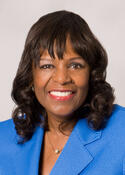
Recognizing Realities
Following the course of my 30+ years in the profession, I clearly recognize that not all early childhood educators have a “common core” of knowledge or experience about how best to work with young children and their families.
There are the teachers who hold a college degree—often in a field other than early childhood education, according to a 2012 GAO report—yet lack essential hands-on experience. On the flip side, there are the teachers who have boatloads of experience but very little in the way of formal education. Still, many other early educators—trusted community and cultural liaisons—may have limited access to the professional development that would strengthen their skills due to their limited English proficiency.
What I’ve learned is that, left unaddressed, the obvious knowledge gaps weaken both the experiences for young children and our profession. On our end, we’re supporting this imbalance through the Child Development Associate™ (CDA) National Credentialing Program. The CDA sets a standard for professional development that bridges these knowledge and experience gaps, and sets the stage for quality care for infants and toddlers, preschoolers, and youngsters in a family child care setting. Other options exist as well—organization-wide training and professional development, support for additional outside education, etc.—but it’s critical that as a field, we acknowledge that we have a challenge that starts even before teachers enter the profession.
Professional Development: A Better Way
Far too few early educators are prepared in programs aligned with the NAEYC position paper on professional development standards that were articulated in 2009, emphasizing that early educators should know how to:
- Promote child development and learning
- Build family and community relationships
- Observe, document, and assess children
- Use developmentally appropriate approaches
- Conduct themselves ethically as members of a profession
Analyzing the current situation, a 2015 Institute of Medicine/National Research Council report points out that the current systems and services in place for the health, development, and learning of young children are fragmented, and practices and policies have not kept pace with what the ECE community deems vital to provide for birth-to-eight children. Among its 13 recommendations, the report calls for comprehensive pathways and timelines for transitioning to a minimum bachelor’s degree requirement.
Over the past 10 years, I have worked intensely with about 700 mid-career early educators and elementary school principals, and provided oversight to more than 45,000 successful CDA candidates. What I have learned is that effective professional development must be comprehensive. There must be lots of “book learning” about theories, methods, and approaches that must be paired with on-site and hands-on practice working with children, families, and programs. It is essential for the educator to have the expert support of a coach, mentor or supervisor (in the CDA world, we use specially-trained “professional development specialists”). The proliferation of “training certificates” in our field absent such a comprehensive approach is likely to be of limited value.
Many national organizations have initiated and want to strengthen our capacities to better align and integrate our services in order to better serve the profession. As an example, NAEYC welcomes CDA candidates—including those starting their career as early as the career and technical high school child development program. NAEYC and the Council have articulated the relationship between the NAEYC accreditation programs and the CDA professional preparation competency standards. Another example is Head Start and many statewide QRISs leveraging tools like CLASS, not just for measurement, but also to improve the quality of teaching practices and provide early childhood educators with an understanding of what effective teaching looks like. Similarly, across the United States, we are seeing colleges embed the CDA in their preparation programs and/or accept CDA credential for college credits. In fact, thousands of early educators have used the CDA to launch their later achievement of baccalaureate, masters and doctoral degrees in the field of early care and education.
To address the realities of early educators today, a better way is represented by a continuous progression of skills and competence and experience with young children—not just the attainment of any bachelor’s degree without context. Let’s even forget that most teachers—93 percent!—that hold a degree majored in something other than early childhood education.
What I’ve Learned
Competence across our profession is the synergy of knowledge, and experience, reflective practice, and support from others—it’s not an either-or, college-versus-CDA proposition. It’s about creating a level of professional training and development that, while meeting them where they are, spurs teachers toward continuous growth to fill the knowledge gaps and improve the quality of care for young children.

Dr. Valora Washington is the president and CEO of the Council for Professional Recognition since January 2011. She previously served as a board member of Wheelock College, and as a professor at Antioch College, Howard University and the University of North Carolina at Chapel Hill. Dr. Washington co-founded several organizations, including Voices for Michigan’s Children, the Early Childhood Funders Collaborative; and The CAYL Institute. She has been co-chair of the Massachusetts Governor’s School Readiness Commission; board chair of Voices for America’s Children; secretary of NAEYC; chair of the Black Caucus of the Society for Research in Child Development; and co-chair of the National Head Start Association Commission on 2010. She is a Teachstone Ambassador.

